In Committe - Extraordinary Council Agenda - In Committee Agenda
Extraordinary Council 09/04/2018
Public Excluded Session
A G E N D A
Page
1.
REPORT OF THE CHIEF EXECUTIVE
1.1
SOUTHLAND MUSEUM AND ART GALLERY
3
1.1.1
Appendix 1
10
1.1.2
Appendix 2
11
**********
1
In Committe - Extraordinary Council Agenda - In Committee Agenda
1
2
In Committe - Extraordinary Council Agenda - REPORT OF THE CHIEF EXECUTIVE
TO:
COUNCIL
FROM:
CHIEF EXECUTIVE
MEETING DATE:
MONDAY 9 APRIL 2018
IN COMMITTEE
Reason for Exclusion:
Local Government Information and Meetings Act 1987 –
(7)
Other reasons for withholding official information:
(2)(a) To protect the privacy of natural persons.
SOUTHLAND MUSEUM AND ART GALLERY
Report Prepared by:
Clare Hadley, Chief Executive
SUMMARY
This report discloses the current information held regarding the earthquake prone nature of
the buildings at the Southland Museum and Art Gallery. It is appropriate for the Invercargill
City Council to work quickly and concurrently with the Southland Museum and Art Gallery
Trust Board, staff and the media.
RECOMMENDATIONS
It is recommended that Council:
Endorse the Chief Executive’s proposal to withdraw staff from the Southland Museum
and Art Gallery building;
AND
Note that a report detailing the financial implications of this situation will be provided
to a subsequent Council meeting;
AND
Signal to Southland Museum and Art Gallery Trust that Council sees the
establishment of a temporary and limited museum presence within the City as
desirable, but that it will need to consider this further against other priorities set out in
the 2018-28 Long-term Plan Consultation Document.
3
In Committe - Extraordinary Council Agenda - REPORT OF THE CHIEF EXECUTIVE
IMPLICATIONS
1.
Has this been provided for in the Long Term Plan/Annual Plan?
No.
2.
Is a budget amendment required?
The implications on the budget are as yet unknown, it is anticipated that higher
costs and lower revenue at the Southland Museum and Art Gallery will result.
3.
Is this matter significant in terms of Council’s Policy on Significance?
No – see analysis below.
4.
Implications in terms of other Council Strategic Documents or Council Policy?
There is the potential for impact on Council’s draft 2018-2028 Long-term Plan from
decisions flowing from the decisions recommended in this report.
5.
Have the views of affected or interested persons been obtained and is any further
public consultation required?
Public consultation is inappropriate at this stage. A communications plan has been
developed for working with the Southland Museum and Art Gallery Trust Board to
brief the media.
FINANCIAL IMPLICATIONS
It is anticipated this matter will lead to an increase in cost alongside an associated decrease
in revenue, because the i-SITE, which currently provides a significant revenue stream to the
Southland Museum and Art Gallery, will need to relocate. Council staff cannot currently
quantify the likely financial impact; a subsequent report will be provided to Council detailing
the financial implications of this matter when more information is available.
LEGISLATIVE CONSIDERATIONS
The Local Government Act 2002 provides that a local authority should be a good employer.
The Act further defines “good employer” to include provision of good and safe working
conditions.
This report is being considered “In-Committee” in accordance with section 7(2) of the Local
Government Official Information and Meetings Act 1987. The reason for the exclusion of the
public is to protect the privacy of natural persons, specifically the staff at the Museum.
Following the meeting of the Southland Museum and Art Gallery Trust Board and notification
of their decision, the Museum staff will be advised. This matter will then be made public via a
media briefing.
The immediate focus is supporting all Invercargill City Council employees that are based at
the Southland Museum and Art Gallery, especially those whose roles may be affected.
SPECIFIC LEGISLATIVE POWER
The Health and Safety at Work Act 2015 came into force in September 2015 and establishes
requirements for the Invercargill City Council, through the Chief Executive, to secure the
health and safety of workers and workplaces. This is discussed further in the report.
4
In Committe - Extraordinary Council Agenda - REPORT OF THE CHIEF EXECUTIVE
The Building Act 2004 (through its 2017 amendments) contains the earthquake-prone
building provisions and sets out the scope of buildings to which those provisions apply. In
2017 Invercargill City was identified as a medium seismic risk area. This identification has
meant that building owners have 12½ years to either fix or demolish their building following
its identification as earthquake prone. It is the local territorial authority that must determine if
a building is earthquake-prone.
The Invercargill City Council has identified priority areas for investigation (refer to
Appendix 1). This shows that the Museum building will likely be considered by Council staff
to determine whether it is earthquake-prone by the end of 2020. The process for
identification of an earthquake prone building by the Invercargill City Council is likely to be
that the Development Liaison Manager assesses the engineers report against a checklist to
determine if the building is earthquake-prone. The Council has not yet delegated the
authority to make this decision to an officer of the Council and, as the Government is still
providing guidance and updating the checklists to be used, the Council is not yet in a position
to classify a building as earthquake-prone.
Notwithstanding this legal process, the Chief Executive considers it inappropriate to continue
occupation of the building without recognition of the engineers’ advice. Council as occupier
and service provider within the building should not delay decision making, purely on the basis
that Council has not issued an appropriate notice under the Building Act.
The Southland Museum and Art Gallery building is owned by the Southland Museum and Art
Gallery Trust.
SOUTHLAND MUSEUM AND ART GALLERY
Management Contract
In 2004 the Southland Museum and Art Gallery Trust Board entered into a contract with the
Invercargill City Council to manage the Southland Museum on its behalf. The staff who
operate and manage the Southland Museum are employed by the Invercargill City Council.
The Chief Executive is ultimately accountable for the staff at the Museum.
The i-SITE located at the Museum is operated by Venture Southland on behalf of the
Invercargill City Council. Venture Southland does not employ staff; the employees of the i-
SITE are also Invercargill City Council staff.
Seismic Assessment
In 2013 a seismic assessment of the museum building was undertaken by Opus International
Consultants. The report described the museum as consisting of three older buildings which
are enclosed by the fourth building, the pyramid. This assessment found that the seismic
ratings of all four of the component buildings were less than 34% of the New Building
Standard.
At the time of the report, the Invercargill City Council’s 2012–2022 Long-term Plan included
provision for the redevelopment of the Southland Museum and Art Gallery and funding was
included. A longstanding funding commitment from the Community Trust of Southland was
also in place. The Southland Museum and Art Gallery Trust Board considered that it was
acceptable to be aware of the report’s seismic rating and that undertaking the planned
upgrade was an appropriate step in resolving the issue.
5
In Committe - Extraordinary Council Agenda - REPORT OF THE CHIEF EXECUTIVE
With the introduction of the new health and safety legislation and the amendment of the
Building Act in regard to earthquake-prone buildings, the Southland Museum and Art Gallery
Trust Board requested that a peer review of the original report be undertaken. A structural
engineer, Win Clark (advisor to Heritage New Zealand), undertook the peer review
requested. His review determined that the report provided a fair and supportable
assessment, which is essentially aligned with the methodology published by the Ministry of
Business, Innovation and Employment, to meet the requirements of the Building Act 2004.
His conclusion was that the Southland Museum and Art Gallery building is probably
‘earthquake-prone’.
Health and Safety at Work Act 2015
The Chief Executive of the Invercargill City Council is considered a person conducting a
business or undertaking for the purposes of the Health and Safety at Work Act 2015. The
legislation imposes a duty on the Chief Executive to provide a safe workplace. Legal
commentators have observed that if, after an earthquake-related serious harm incident, it
became clear that a person conducting a business or undertaking had failed to take all
practicable steps to ensure the safety of employees and other people in or near the building,
they could face enforcement action under the Act.
The Museum has a total staff of 32 and receives visitor numbers in excess of 230,000 each
year (248,463 in 2015/16; 232,580 in 2016/17). As a part of the visitor numbers, through the
Learning Experience Outside the Classroom programme, the Museum hosts over 4,000
students from 58 different Southland schools.
Withdrawal of Staff
The funding for the upgrade of the Museum, expected to be received from the Community
Trust of Southland, has been withdrawn. The Council’s proposed 2018-2028 Long-term
Plan, currently being publicly consulted on, has identified that the upgrade of the Museum is
ten years away. In considering these two details, the peer-reviewed report as well as the
implications of the changes in the legislation, the Chief Executive has determined that it is no
longer acceptable in the medium to long-term to have staff remain in the building.
The Chief Executive has advised the Chair of the Southland Museum and Art Gallery Trust
Board that she proposes to withdraw staff from the building. The Chair has indicated
informally that the Board recognises the difficulties any withdrawal of staff will bring. The
Southland Museum and Art Gallery Trust Board will also be meeting the day that this report
is considered by the Council.
There are precedents for the withdrawal of staff from other centres around New Zealand and
also with the Council’s own response to the potential earthquake-prone buildings at
Anderson House (2015) and the Water Tower (2012).
The Rotorua Museum has been closed indefinitely and non-essential staff were removed
when a detailed seismic assessment saw the building as being below 33% of the New
Building Standard. The Grey District Council closed its History House Museum due to
earthquake prone building concerns. The Grey District Council considered it had no option
but to close the building for the safety of its staff and the public.
The timeframe for any withdrawal of staff is continuing to be worked through with the Director
of Works and Services, the Museum Manager and Human Resources; it will need to be
timely. A further report will be provided to Council.
6
In Committe - Extraordinary Council Agenda - REPORT OF THE CHIEF EXECUTIVE
The withdrawing of staff and the potential closure of the Southland Museum and Art Gallery
by the Trust Board will impact on the employment of all employees based in that building, but
in particular will impact on those involved in front of house, retail and café operations. It will
be important to retain a core of employees to continue essential museum operations. A
comprehensive management plan to identify essential roles and activities that ensure risk
and safety mitigation will be developed.
Further Implications
Whether to establish an interim museum presence in the City is the decision of the Southland
Museum and Art Gallery Trust Board; the Trust Board also owns the collection. The Council
needs to consider whether this is something that it would support. In determining whether to
support such an occurrence, Council will need to consider the costs of establishing the inner-
city museum presence and whether a museum presence of this scale would be valued by the
community and valuable to the City. The costs of establishing any museum presence are not
yet known.
Venture Southland has been asked to locate suitable premises for relocation of the i-SITE.
This investigation has already commenced and the i-SITE will be located within the City
Centre when staff are withdrawn from the Southland Museum and Art Gallery building.
Additional funding for this may also be required.
The withdrawal of staff from the Southland Museum and Art Gallery building will have
impacts on the budget. The shop and café are expected to hold a neutral operating position,
as although the revenue from these areas will not be realised, the cost of operating will also
cease. The income from the i-SITE will be lost, yet some curatorial expenses will remain;
this will have a negative impact on the budget.
Within the Consultation Document is a proposal to develop an Arts Centre in the heart of the
city, a Living Dinosaurs experience, the construction of a regional storage facility and the
redevelopment of the Museum. It would be most appropriate for Council to consider the
funding for any temporary or limited presence of the Museum within this context, as part of
the Long-term Plan considerations.
PROCESS
Significance and Engagement Policy
The Council is required to consult on issues as determined by it. To help with the
determination and to guide the level of consultation, Council has adopted a Significance and
Engagement Policy. Using the categories contained in that policy, the decisions
recommended above are not significant. Should Council disagree with the analysis below,
the Policy allows that where an urgent decision must be made, Council will tailor its decision–
making process to include as much consultation and evaluation as is practicable within the
specified timeframe. If, due to time limitations, a potentially significant decision is made
without consultation, Council will communicate the details of the decision to the public at a
level appropriate to the nature of the matter. Post-decision communication is planned for this
issue.
Analysis
:
a.
Community outcomes
The recommended decisions contribute to the Community Outcomes adopted by
Council.
Low significance.
7
In Committe - Extraordinary Council Agenda - REPORT OF THE CHIEF EXECUTIVE
b.
Consistency with Long-term Plan
The recommended decisions have not been included in the Long-term Plan.
Greater
significance.
c.
Net cost to Council
There will be a financial impact on Council; this is not considered to be significant and
will be discussed in future reports.
Low significance.
d.
Variation of options
Should Council determine to make a contrary decision to the recommended decisions
the variation in impact of the options would not be significant in financial terms and for
impact on the community.
Low significance.
e.
Reversibility
The recommended decisions would be easily reversible should different information
come to pass.
Low significance.
f.
Level of controversy
The overall issue is likely to be controversial within the community. The recommended
decisions are likely to be less controversial within the community.
Moderate
significance.
g.
Precautionary approach
There is little uncertainty around the outcomes of this decision.
Low significance.
h.
Impact on funders
The impact on rates or user charges is unknown.
Unknown.
INCONSISTENCY
The decisions recommended above are not inconsistent with any existing bylaw, policy, plan
or other legislation.
RISKS
As mentioned previously in this report, the Chief Executive does not consider that it is an
acceptable risk in the medium to long-term to have staff remain in the building. At this time
Council staff have had no advice that there is an imminent threat. If the building is
earthquake-prone, which is what the engineers’ reports conclude, this means that it is
considered to be of such strength that it would have its ultimate capacity exceeded in a
‘moderate earthquake’ and if it were to collapse, would likely cause injury or death to persons
in the building.
Utilising the risk framework from the Council’s Activity Management Plans (refer to
Appendix 2) it can be ascertained that, as the consequence is either Extreme (6) or Major
(5) and the probability is Unlikely (D) or Rare (E), the unmitigated risk is, at best, high.
8
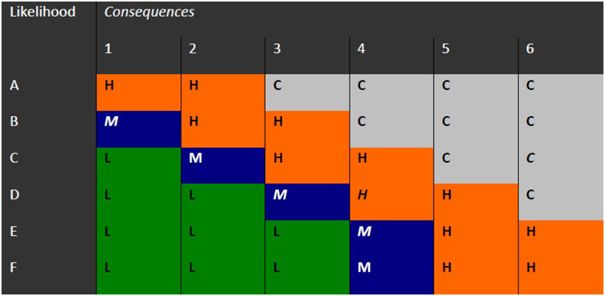
In Committe - Extraordinary Council Agenda - REPORT OF THE CHIEF EXECUTIVE
The primary duty of care requires a person conducting a business or undertaking, in our
circumstances the Chief Executive, to ensure health and safety ‘so far as is reasonably
practicable’. When used in this context, something is reasonably practicable if it is
reasonably able to be done to ensure health and safety, having weighed up and considered
all relevant matters, including:
∑
How likely are any hazards or risks to occur?
∑
How severe could the harm that might result from the hazard or risk be?
∑
What a person knows or ought to reasonably know about the risk and the ways of
eliminating or minimising it?
∑
What measures exist to eliminate or minimise the risk?
∑
How available and suitable is the control measure(s)?
Following the considerations above, lastly weigh up the cost:
∑
What is the cost of eliminating or minimising the risk?
∑
Is the cost grossly disproportionate to the risk?
The proposed withdrawal of staff from the Southland Museum and Art Gallery building is the
most suitable control measure for eliminating the risk of injury or death from occupation of a
potentially earthquake-prone building. The withdrawal of staff will have a financial impact,
but the cost of doing so is not grossly disproportionate to the risk.
CONCLUSION
Not all information is available at this time and there are aspects of any withdrawal of staff
from the Southland Museum and Art Gallery building that still need to be worked through.
Future reports will be presented to Council to keep them informed. This report seeks that
Council endorse the Chief Executive’s proposal to withdraw staff from the Southland
Museum and Art Gallery building, note that a subsequent report detailing the financial
implications of this situation will be provided and, while noting that an interim museum
presence is the decision of the Southland Museum and Art Gallery Trust Board, signal the
desirability of establishing a temporary museum presence within the City, subject to further
consideration within Council’s Long-term Plan deliberations.
**********
9
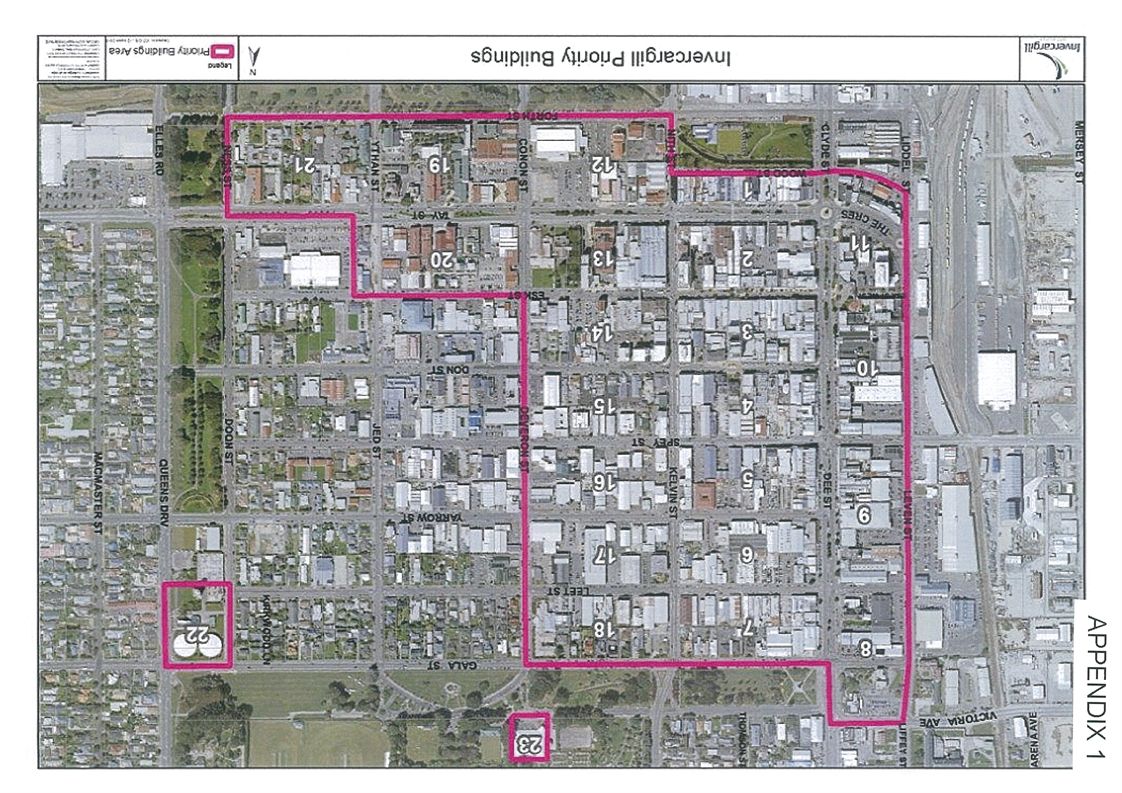
In Committe - Extraordinary Council Agenda - REPORT OF THE CHIEF EXECUTIVE
10
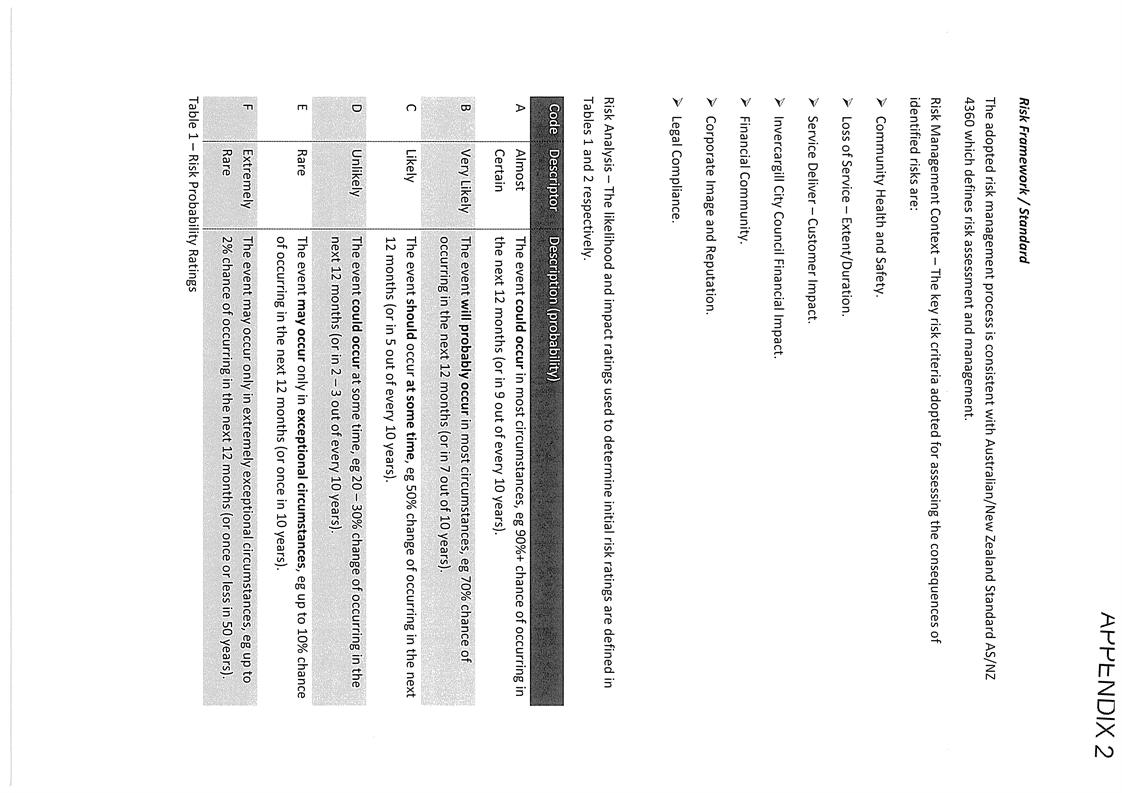
In Committe - Extraordinary Council Agenda - REPORT OF THE CHIEF EXECUTIVE
11
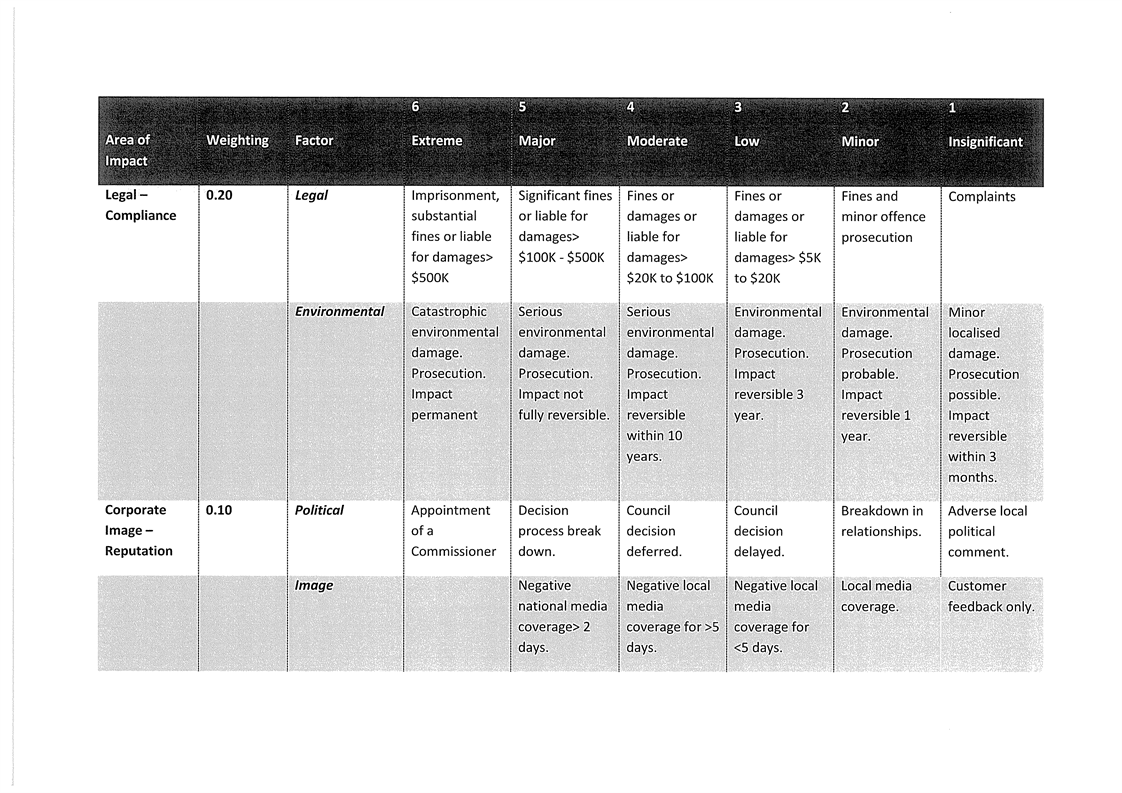
In Committe - Extraordinary Council Agenda - REPORT OF THE CHIEF EXECUTIVE
12

In Committe - Extraordinary Council Agenda - REPORT OF THE CHIEF EXECUTIVE
13
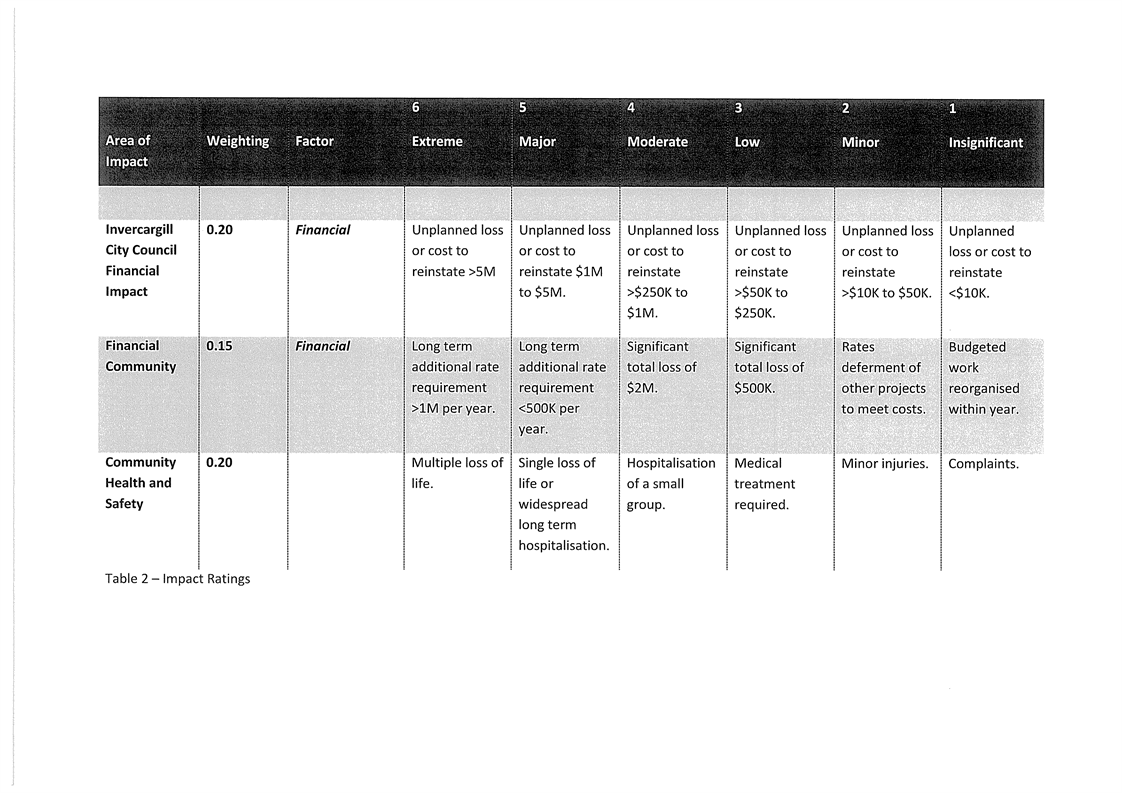
In Committe - Extraordinary Council Agenda - REPORT OF THE CHIEF EXECUTIVE
14

In Committe - Extraordinary Council Agenda - REPORT OF THE CHIEF EXECUTIVE
15
Document Outline






